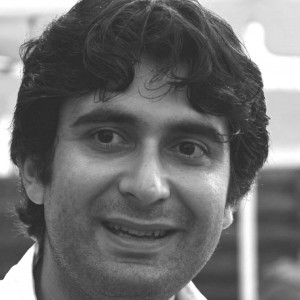
By Ramyar Hassani:
Here is why the excessive media coverage given to Mullah Krekar is damaging. During the past few weeks, media outlets, especially Kurdish and Norwegian ones, have paid a lot of attention to Mullah Krekar. His quotes have been repeated over and over in all kinds of media outlets, both local and international. This article is not focusing on media ethics nor questioning them. Let’s be clear: I am not here backing censorship! The media does its job of telling stories, publishing interviews and publicizing quotes as they are. However, by sensationalizing certain issues it can cause an already difficult situation to deteriorate.
Europe is facing a wave of far right-wing groups demanding the expulsion of the Muslims. These groups represent only a small percentage of Europeans but they have the potential to grow quickly. This wave has the potential to become disastrous: for instance, the neo-nazi Pegida group is a warning signal. What all of these groups would love, in order to justify their heinous demands and acts, is to be able to stereotype all immigrants and fit them into the box of terrorism and security threats.
Of course it is essential to consider all the necessary precautionary steps to ensure the safety of the continent and its population. Nonetheless, we should keep it in mind that local Muslim communities have played a very positive role towards the development of a multicultural and peaceful Europe.
One month ago Najmuddin Faraj, known as Mullah Krekar, a Jihadi Kurd, was released from prison after a 34 month imprisonment in Norway. He had been imprisoned on the charge of threats made towards three Kurds and Erna Solberg, the current Norwegian prime minister. Three days ago, Krekar was arrested again for promoting violent acts in his latest interview with the Norwegian channel of NRK.
On both occasions – when he was released a month ago and then arrested again a few days ago – the media coverage was very high.
Overreacting to the interviews given by Mullah Krekar or filling all the media with his quotes makes it much easier for groups like Pegida to spread their hatred against Muslims. The public’s mind can be affected and changed by the mass media very easily. This can have the bad consequence of people promoting Islamophobia indirectly and unconsciously. However, nobody in Europe will derive benefit from Islamophobia, apart from the extremists on both sides.
On the other hand, a dangerous high-risk extremist like Krekar has an impact on many of his young sympathizers. Of course, he is seeking to send out his opinions and messages. After his release from prison last month, he was unable to communicate with his sympathizers through the internet and social media because of the limitations imposed on him by the authorities. There is no doubt that cutting the communication line between a high-profile terrorist and his sympathizers is one of the best steps to take. But, in case of Mullah Krekar, the media, including local Kurdish and international outlets, have provided a platform for him to send out his messages and instructions to radical Muslims who support him.
It will best for the media to neither stoke the fires of the campaign started by far-right groups nor be used as a bridge to transfer messages from a terrorist to his sympathizers. All over the world, there is fertile land for all sorts of extremism and we are now at a crucial stage in finding the way to deal with this.
.jpg)


